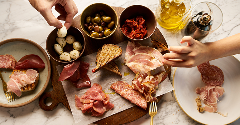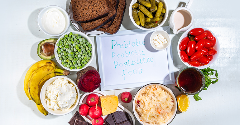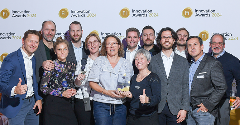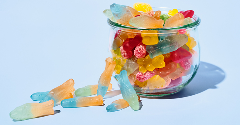News
Pet food space gets healthy infusion at Nestlé's latest accelerator class
18 May 2022
Pets and the food they eat is beginning to reflect the dietary choices that their owners themselves are making. From obesity-fighting formulations to the introduction of ancient grains and alternative proteins, the options for targeted, functional foods within the pet food sector are growing.
Recently, Nestlé’s Purina pet food division launched its latest class in Europe's first pet care accelerator programme, selecting pet care startups from across Europe and North Africa. The participants from this round are eniferBio from Finland; MOA Foodtech from Spain; knok from Portugal; Kibus from Spain; Feragen from Austria; and Vetwork from Egypt.

As part of this programme, startups receive six months' mentorship and CHF 50,000 (€47,972) for a proof-of-concept project to grow their business in a market that is demanding ever more innovation in the pet food space.
“After a global pandemic, the number of pet owners and animal lovers worldwide is greater than ever, and the industry is responding by accelerating its innovation, offering greener, smarter and better solutions than ever before,” Nestlé Purina PetCare, Europe CEO Jeff Hamilton said in a statement.
Innovation is unleashed in pet food
Purina is no stranger to innovation within the pet food space. Nestlé’s pet food division has the LiveClear cat food line, which is a formula that includes an egg-based protein with Fel d1 antibodies that it developed in 2019 to neutralise the major feline allergen. For dogs, the Swiss manufacturer developed a functional canine food called Calm & Balanced that is intended to promote a calm demenaour in dogs.
The startups that were selected to participate in Nestlé's accelerator focus on a variety of different aspects within the pet food space. MOA Foodtech develops its protein from food waste; knok is working on developing wearables for pets; Kibus is producing an automated device to prepare dog food; Feragen provides DNA testing for pets; and Vetwork aims to bring pet care into the home through its app.
Humanization of the pet product marketplace
The premiumization of pet food is on the rise as more consumers consider what exactly their pets are eating. The result is that many of the trends that are popular for human food are also making an appearance in the pet food sector. Organic pet food is one category that has ballooned. In 2020, the organic pet food segment reached $22.8 billion in sales.
Similarly, pet supplements for joint, fur, heart and oral health have been on the rise. Grand View Research found that the global pet supplements market will increase from $1.9 billion in 2021 at a compound annual growth rate (CAGR) of 5.9% through 2030.
Increased premiumization of pet food has pushed pet owners to spend more on feeding their animals. In the United States, $42 billion (€40 billion) was spent on pet food and treats in 2020, a 9.7% increase from a year prior, according to the American Pet Products Association.
The global pet food market in general is also growing. Fortune Business Insights projects the market to grow at a 5.11% compound annual growth rate from $110.53 billion(€106.25) in 2021 to $163.7 billion (€157.37) by 2029.
Related news

Oat Barista: Innovation for game-changing beverages
20 Nov 2025
Oat Barista is a clean label, sustainable, and innovative drink base specifically designed to create the perfect foam in one single ingredient.
Read more
Nitrites: Pressure grows on UK to follow EU’s lead
20 Nov 2025
Pressure is growing on the UK to follow the EU’s lead after the bloc revised its regulations on the permitted levels of nitrites and nitrates in cured meats.
Read more
Empowering innovation in fortification and colouration
13 Nov 2025
Divi’s Nutraceuticals offers a large portfolio of innovative, high-quality ingredients for foods, beverages, and supplements, with bespoke solutions and expert support for product success.
Read more
Danone highlights digestive health as potential ‘tipping point’ for food industry
13 Nov 2025
Danone is betting on a food industry “tipping point” that will bloat the market for healthy products, particularly those related to gut health.
Read more
Standing Ovation and Bel scale up casein production from dairy co-products
11 Nov 2025
Foodtech company Standing Ovation has partnered with cheese specialist Bel Group to manufacture dairy serums for industrial-scale casein production via precision fermentation.
Read more
AI attraction means foodtech startups must ‘prove’ rather than ‘promise’
4 Nov 2025
Reports suggest that artificial intelligence (AI) is sucking investment from foodtech and agritech, but investors say the picture is complicated.
Read more
Will postbiotics become the go-to functional ingredient?
3 Nov 2025
Postbiotics show significant promise for the functional foods market due to their safety profile and beneficial bioactive properties, research suggests.
Read more
Meet the finalists of the Fi Europe Innovation Awards 2025
31 Oct 2025
Who made it to the shortlist of the Fi Europe Innovation Awards 2025? Read about the 23 companies making food and drink products healthier and manufacturing processes more efficient.
Read more
Penguin and Club bars no longer classed as chocolate
30 Oct 2025
Penguin and Club bars can no longer be classified as chocolate after the pladis-owned McVitie’s brands turned to cheaper alternatives amid the ongoing cocoa crisis.
Read more
Shorter drying time, sweeter success!
30 Oct 2025
Curious about cost-effective, sustainable and delicious candy making? Stefan Wessel reveals how Avebe’s solutions reduce drying time and energy use by up to 50%.
Read more